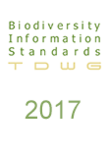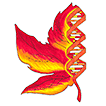In this collection

|
Papers published: 5 Documents added: 0 Total pages: 16 Printed version: Paperback Unique views: 9834 Total views: 18266 |
Knowledge graphs - knowledge bases which encode information using graph structures - have recently demonstrated their power in supporting knowledge discovery tasks such as data aggregation and semantic search. Well-known knowledge graphs such as DBpedia and Google's Knowledge Graph have been built to store general-domain facts, and are now widely used in many knowledge discovery applications. We should also be able to construct large-scale graphs capturing biodiversity knowledge, which will enable linking and consolidation of information from multiple complementary sources - databases such as the Encyclopedia of Life (EoL), Global Biodiversity Information Facility (GBIF), Biodiversity Heritage Library (BHL) and Pensoft.
This workshop is focussed on the demonstration and use of technologies that facilitate the construction of biodiversity knowledge graphs based on various data sources. Firstly, we shall showcase tools for automatically analysing secondary data, i.e., biodiversity literature. These range from tools or services that can automatically recognise mentions of pertinent concepts (e.g., taxa, environments) such as EXTRACT, to those that disambiguate and link such mentions with controlled vocabularies and primary (occurrence) data, through to ones which identify semantically related names (e.g., using distributional semantics). Importantly, we will demonstrate how a graph database - a Neo4j instance - can be populated with the automatically extracted information. Emphasis will also be given to the benefits of representing information using a graph database. Furthermore, we shall demonstrate how these diverse tools - as well as those contributed by other members of the community - can be federated, i.e., integrated into unified pipelines, using Argo: a graphical Web-based workbench for user-interactive construction of processing workflows. In this way, the workshop will provide the know-how for building knowledge graphs through bespoke processing workflows that do not require any programming effort.
Applications of the above technologies in the context of use cases will then be presented. A specific example is the graph representation of knowledge stored in World Flora Online (WFO) which would: (1) integrate WFO content with data from other platforms, e.g., GBIF, EoL, and (2) enable searching for more descriptive plant species information, e.g., related common or vernacular names, location, habitat, reproductive state. An open discussion of further use cases that are of interest to the community will be held.

